
Training in the CoE
Training activities are a cornerstone of our Cluster of Excellence, involving every member in all phases of their scientific careers. We are dedicated to developing training activities that meet the highest standards, as set by the European Charter for Researchers, both within and outside the CoE. This commitment ensures the quality of our training, accelerates life-long learning, and leverages the manifold synergies across the CoE.
The CoE Training Committee, led by Andreas Bergthaler (MedUni Wien), will coordinate training activities across the CoE. Among the different career stages represented in the CoE, we will particularly focus on three main groups of persons for which specific training and mentoring are especially important to promote their careers:
- • Master’s Students
- • PhD Students
- • Postdoctoral Researchers and Junior CoE Faculty Members
Master’s students
Advanced training at the master’s level ensures that we create a pool of highly qualified students who may be interested in joining the CoE. It will also enhance the education of aspiring researchers and future leaders in a dynamic research field. The CoE Microplanet is an extraordinary opportunity to focus established and new teaching efforts to provide a learning initiative that will benefit not only the members of the CoE and their students but also the academic institutions in Austria and beyond. The CoE initiative for master’s students has multiple components:
- • An interdisciplinary virtual curriculum, i.e., a package of courses carefully selected to enhance the training of master’s-level students in microbiome research in medical and environmental contexts.
- • A multitude of cutting-edge projects in the area of microbiome science that provide research opportunities for master’s students in a collaborative environment.
- • A diverse intellectual environment that transcends institutional, disciplinary, and hierarchical boundaries.
- • Support for talented students during their master’s thesis work regardless of social background, gender, sexual orientation, ethnicity, etc.
PhD students
Doctoral students are a vital group within all research teams of the CoE. PhD students contribute their intellect, creativity, and significant workload to the research goals, and they represent the upcoming generation of scientists. The CoE strives to generate a prolific environment for doctoral training in microbiome research preparing students for their individual scientific careers in sectors such as academia and industry.
Doctoral studies are regulated in detail by the participating host universities and their doctoral schools or PhD study programs. The CoE brings additional training, cross-cutting communication, collaboration, and access to high-level infrastructure without disciplinary boundaries. The Doctoral School of Microbiology and Environmental Science of the University of Vienna (VDS MES) is a central hub for achieving coherent activities among all CoE institutions.
Major aims for doctoral training in the CoE
• Effective onboarding through workshops and early lab rotations for new students
• Excellence supervision by the research group and a thesis advisory committee
• Development of scientific and transferable skills through targeted courses
• Dealing with individual weaknesses through individual coaching and peer support
• Scientific exchange and networking through secondments, internships, scientific and social events
• Healthy work-life balance and good mental health through peer support and psychological counseling
• Support for future careers through a career development plan
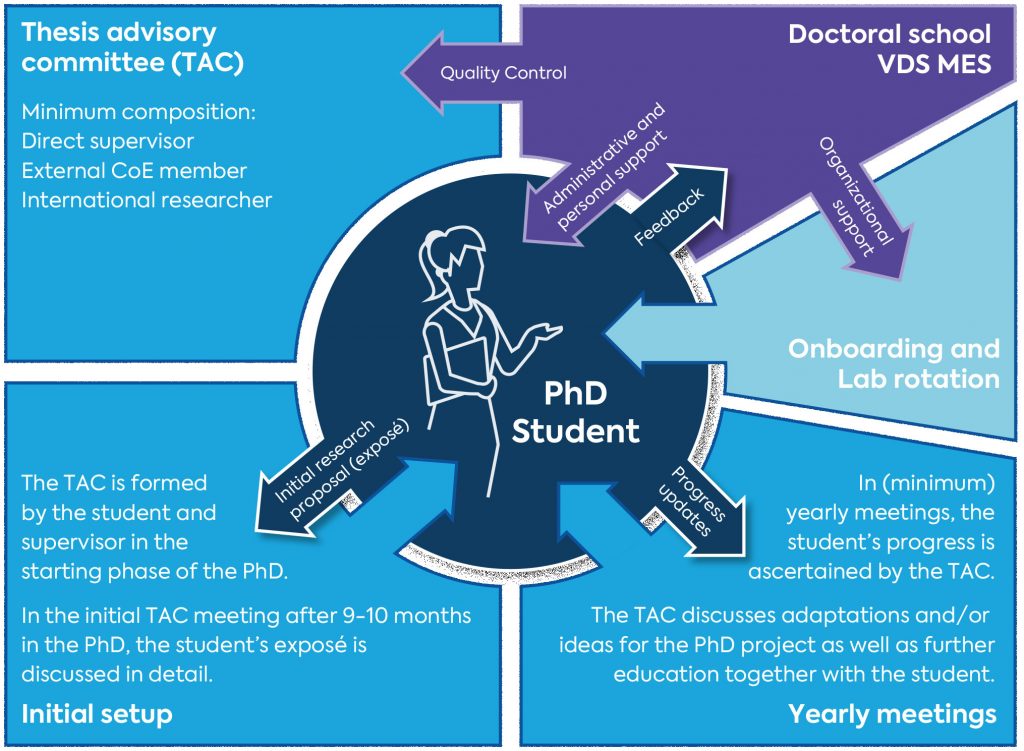
Postdoctoral Fellows and Junior CoE Faculty
Postdoctoral appointments represent a critical career step for young researchers. Working in the CoE will boost scientific efficiency in terms of a top-level intellectual environment, collaborative opportunities, and high-level infrastructural access and promote the international visibility that is so essential at this career stage. The postdoctoral researchers will benefit from intense, cooperative mentoring and networking by Key Researcher teams involved in their project and from organizing and participating in a range of joint activities such as the annual retreats and scientific workshops.
Classical academic PostDoc training often fails to provide opportunities to practice non-project-related skills. Thus, we’ve identified four major aims for PostDoc training within the CoE that will improve the success of starting scientific leaders in industry, teaching, science communication, or academic positions.
Major aims for Postdoctoral training in the CoE
• Active and early career planning, including a career development plan, individual coaching, teaching opportunities, or entrepreneurship training.
• Training in independence-related skills, such as self-management, negotiation, and grant writing
• Training in leadership skills, such as mentoring, inclusive communication, awareness of unconscious bias, and work ethics
• Networking and science communication through PostDoc-led activities and science communication training
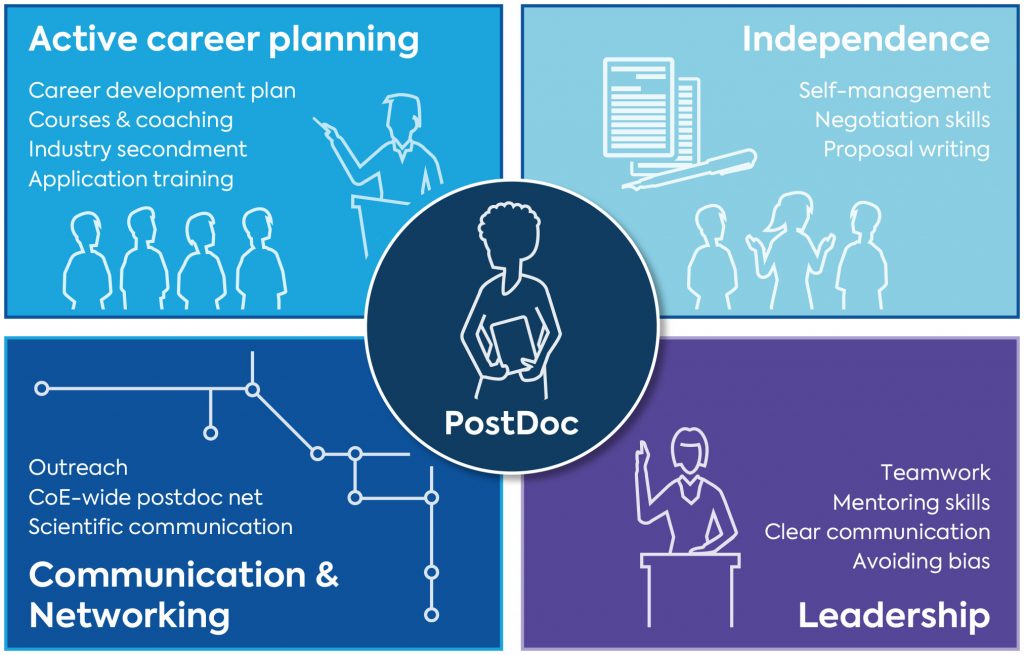
coe Training Committee members
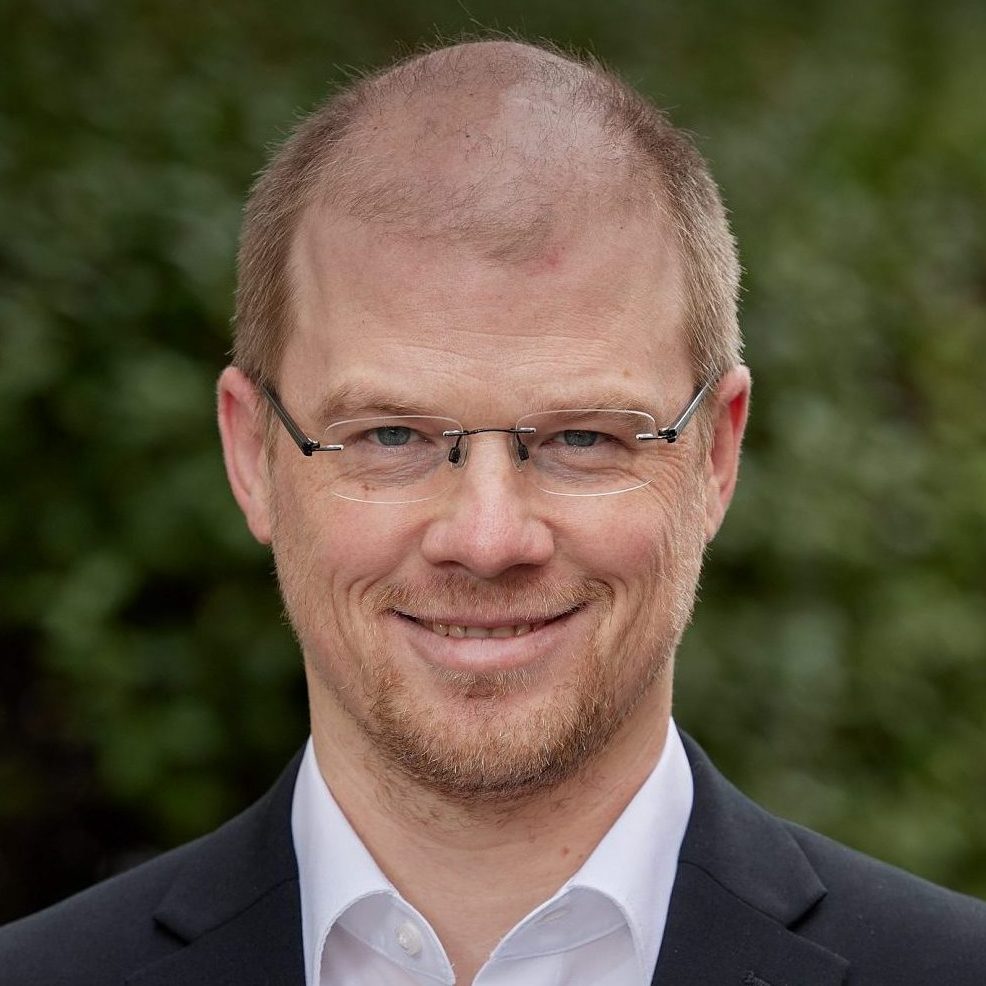
andreas bergthaler
Training Committee Leader
MEdical UNIVERSITY of vienna
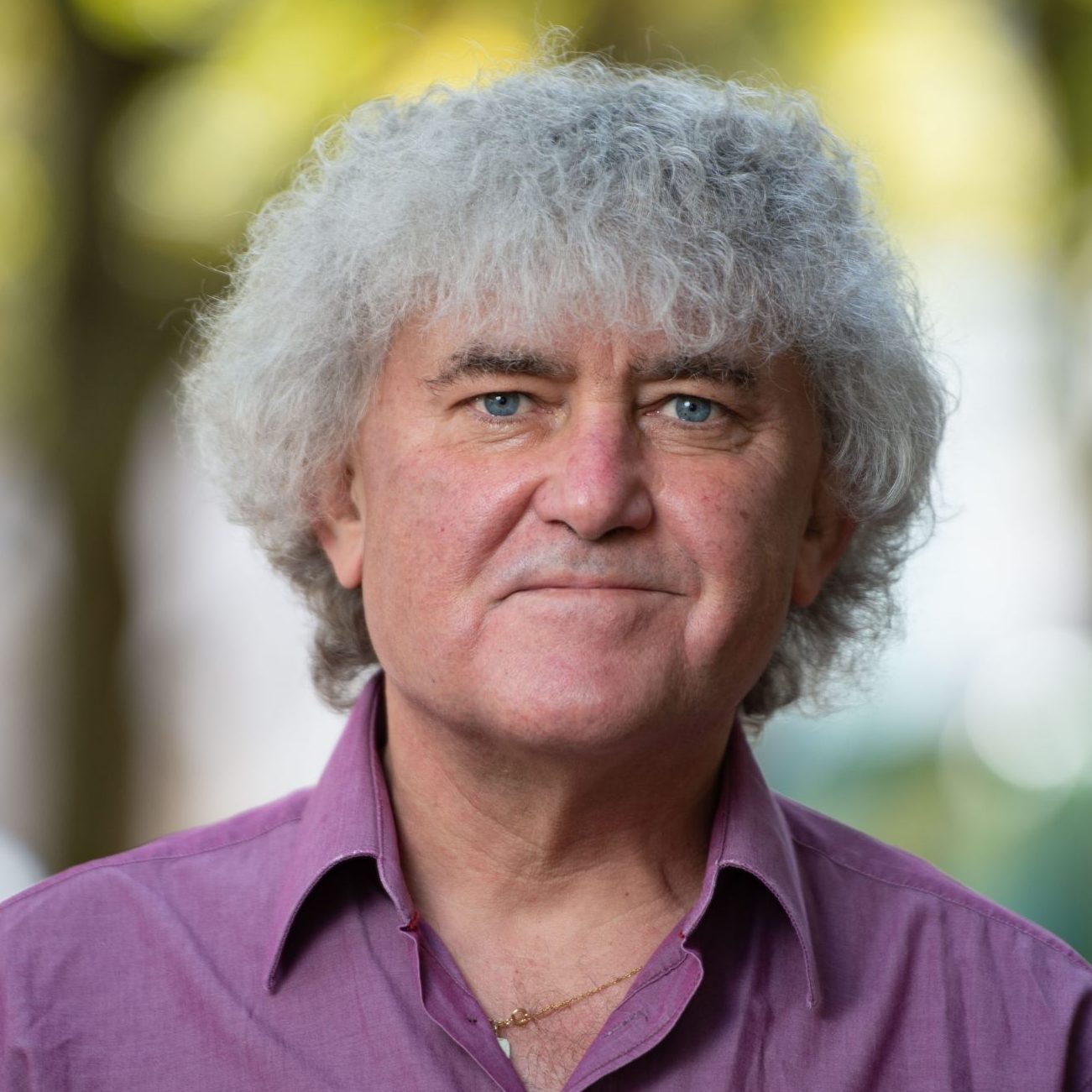
peter hinterdorfer
Committee Member
johannes kepler university linz
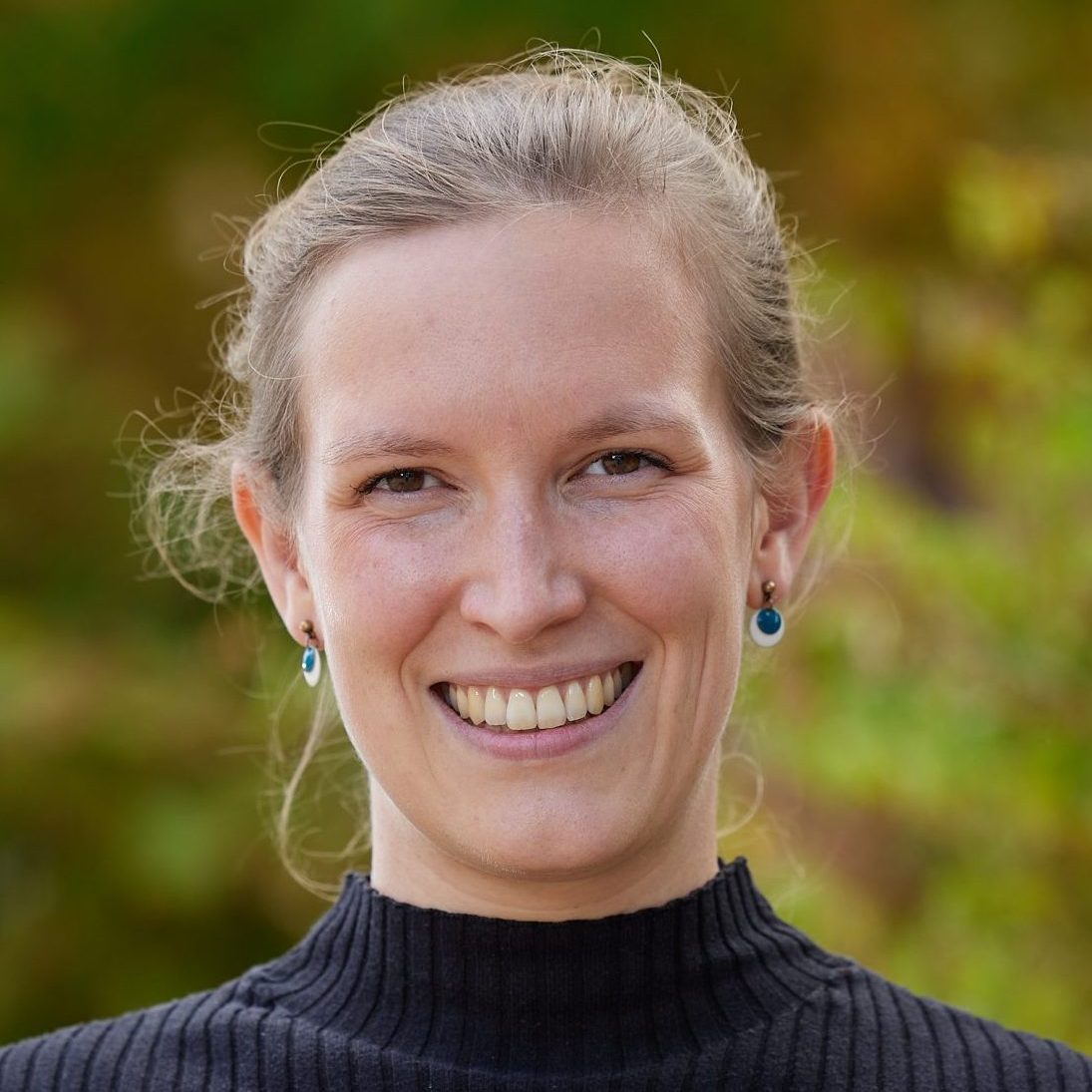
katharina kitzinger
Committee Member
UNIVERSITY of vienna
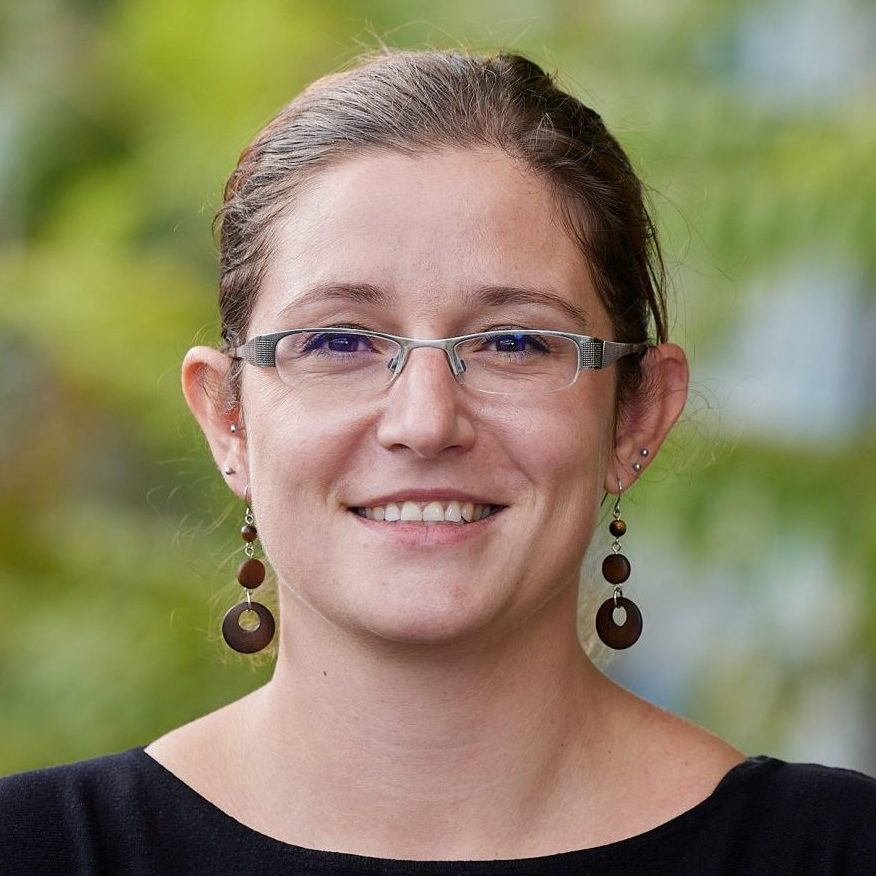
petra pjevac
Committee Member
UNIVERSITY of Vienna
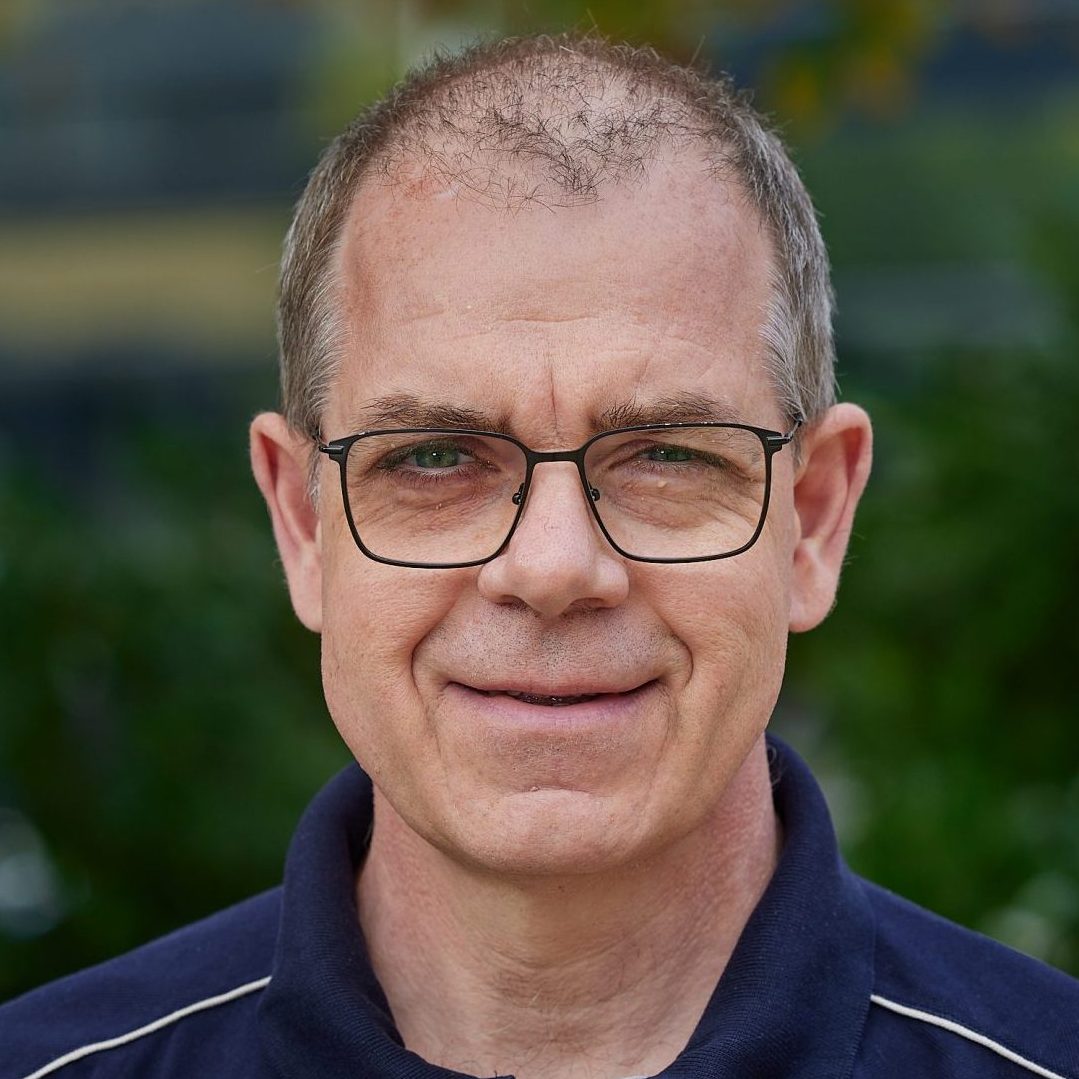
thomas rattei
Committee Member
UNIVERSITY of vienna
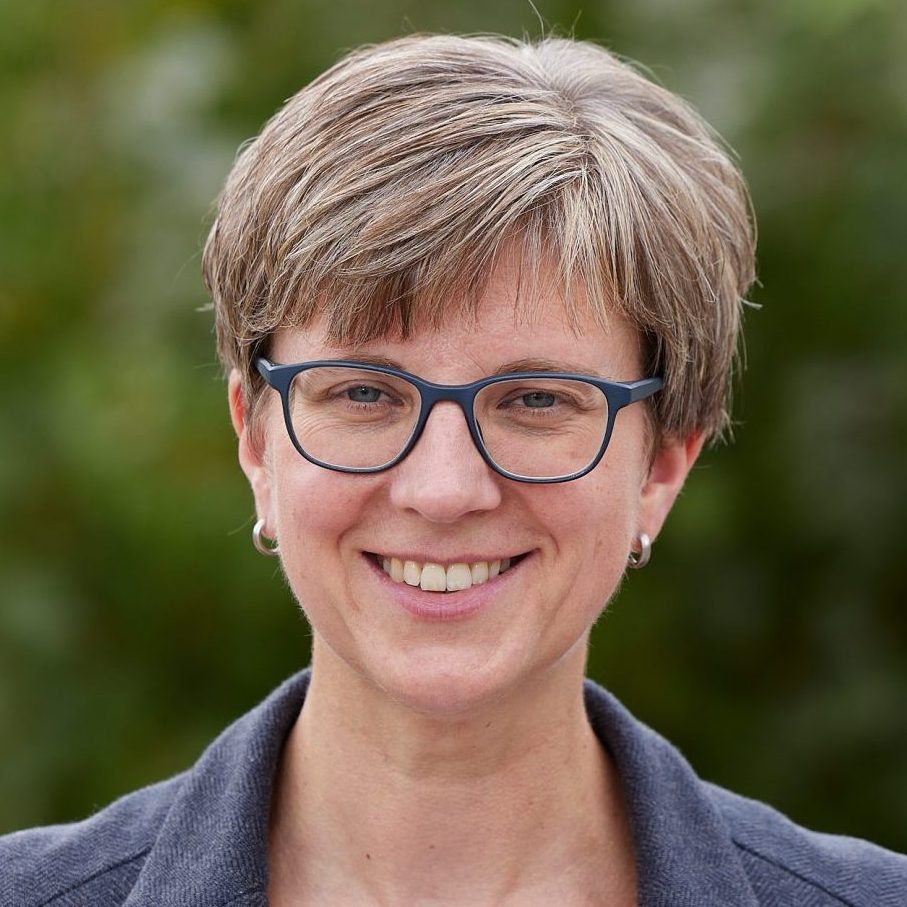
dagmar woebken
Committee Member
UNIVERSITY of Vienna

